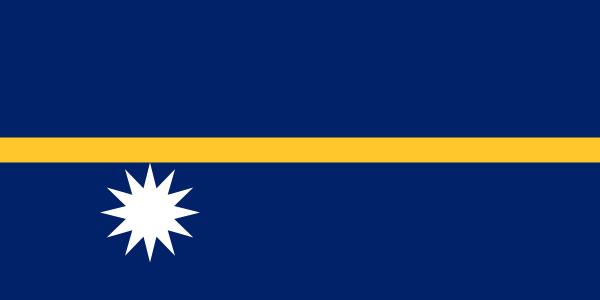Re: Georgian-South Ossetian conflict
Pacific Island Recognizes Georgian Rebel Region

SUKHUMI, Georgia (Reuters) - The tiny Pacific island of Nauru recognized the rebel Black Sea region of Abkhazia on Tuesday, throwing its weight behind a Russian drive to win international recognition for Georgia's breakaway territories.
The island of 14,000 people joined Russia, Nicaragua and Venezuela in recognizing Abkhazia, following a five-day war last year between Russia and Georgia over breakaway South Ossetia.
"We have established relations with the world's biggest nation (Russia), and now with the smallest," Abkhaz Foreign Minister Sergei Shamba told Reuters.
But Georgia said Russia had "bought recognition." "It doesn't change anything in international politics," said Minister for Reintegration Temur Iakobashvili. "If someone is happy that Abkhazia is now recognized by the country no one knew about yesterday, let him be happy."
Russia's Kommersant newspaper cited a source on Monday as saying Nauru had asked Russia for $50 million for projects on the island, which once made its money from exporting phosphates mined from fossilized bird droppings.
Asked if Nauru had been paid to recognize Abkhazia, Shamba replied: "You don't establish diplomatic relations like that ... although of course the entire international practice is sheer bargaining to a certain extent."
LOBBYING LATIN AMERICAN
Shamba said Abkhazia was lobbying Latin American countries and the Middle East, but the process was "hampered by mighty forces," such as the United States and European Union.
Russia's RIA Novosti quoted Nauru Foreign Minister Kieren Keke as saying: "I hope that other countries will follow our example and also recognize the independence of Abkhazia."
Nauru, an island of 21 square km (8 square miles), gained independence in 1968 and joined the United Nations in 1999 as the world's smallest independent republic, according to the CIA World Factbook. It is 14,000 km (8,700 miles) from Abkhazia.
Abkhazia and South Ossetia broke away from Georgian rule in wars in the early 1990s after the collapse of the Soviet Union.
After mounting tensions, Georgia launched an assault on South Ossetia in August 2008, triggering a devastating Russian counter-strike.
Russian forces now control the borders of both regions and patrol Abkhazia's coastline, once the playground of the Moscow elite. Both regions are overwhelmingly dependent on Russia for security and economic support.
Nauru has also recognized Western-backed Kosovo, which declared independence from Serbia in February 2008 over Russian objections. Kosovo has so far been recognized by 63 countries.
Venezuela recognized Georgia's rebel regions in September during a trip by President Hugo Chavez to Moscow when he sealed a deal to buy Russian tanks and hardware worth a reported $500 million.
(Additional reporting by Aydar Buribayev in Moscow; Writing by Matt Robinson; Editing by David Stamp)
Pacific Island Recognizes Georgian Rebel Region

SUKHUMI, Georgia (Reuters) - The tiny Pacific island of Nauru recognized the rebel Black Sea region of Abkhazia on Tuesday, throwing its weight behind a Russian drive to win international recognition for Georgia's breakaway territories.
The island of 14,000 people joined Russia, Nicaragua and Venezuela in recognizing Abkhazia, following a five-day war last year between Russia and Georgia over breakaway South Ossetia.
"We have established relations with the world's biggest nation (Russia), and now with the smallest," Abkhaz Foreign Minister Sergei Shamba told Reuters.
But Georgia said Russia had "bought recognition." "It doesn't change anything in international politics," said Minister for Reintegration Temur Iakobashvili. "If someone is happy that Abkhazia is now recognized by the country no one knew about yesterday, let him be happy."
Russia's Kommersant newspaper cited a source on Monday as saying Nauru had asked Russia for $50 million for projects on the island, which once made its money from exporting phosphates mined from fossilized bird droppings.
Asked if Nauru had been paid to recognize Abkhazia, Shamba replied: "You don't establish diplomatic relations like that ... although of course the entire international practice is sheer bargaining to a certain extent."
LOBBYING LATIN AMERICAN
Shamba said Abkhazia was lobbying Latin American countries and the Middle East, but the process was "hampered by mighty forces," such as the United States and European Union.
Russia's RIA Novosti quoted Nauru Foreign Minister Kieren Keke as saying: "I hope that other countries will follow our example and also recognize the independence of Abkhazia."
Nauru, an island of 21 square km (8 square miles), gained independence in 1968 and joined the United Nations in 1999 as the world's smallest independent republic, according to the CIA World Factbook. It is 14,000 km (8,700 miles) from Abkhazia.
Abkhazia and South Ossetia broke away from Georgian rule in wars in the early 1990s after the collapse of the Soviet Union.
After mounting tensions, Georgia launched an assault on South Ossetia in August 2008, triggering a devastating Russian counter-strike.
Russian forces now control the borders of both regions and patrol Abkhazia's coastline, once the playground of the Moscow elite. Both regions are overwhelmingly dependent on Russia for security and economic support.
Nauru has also recognized Western-backed Kosovo, which declared independence from Serbia in February 2008 over Russian objections. Kosovo has so far been recognized by 63 countries.
Venezuela recognized Georgia's rebel regions in September during a trip by President Hugo Chavez to Moscow when he sealed a deal to buy Russian tanks and hardware worth a reported $500 million.
(Additional reporting by Aydar Buribayev in Moscow; Writing by Matt Robinson; Editing by David Stamp)










Comment